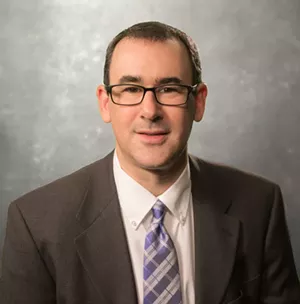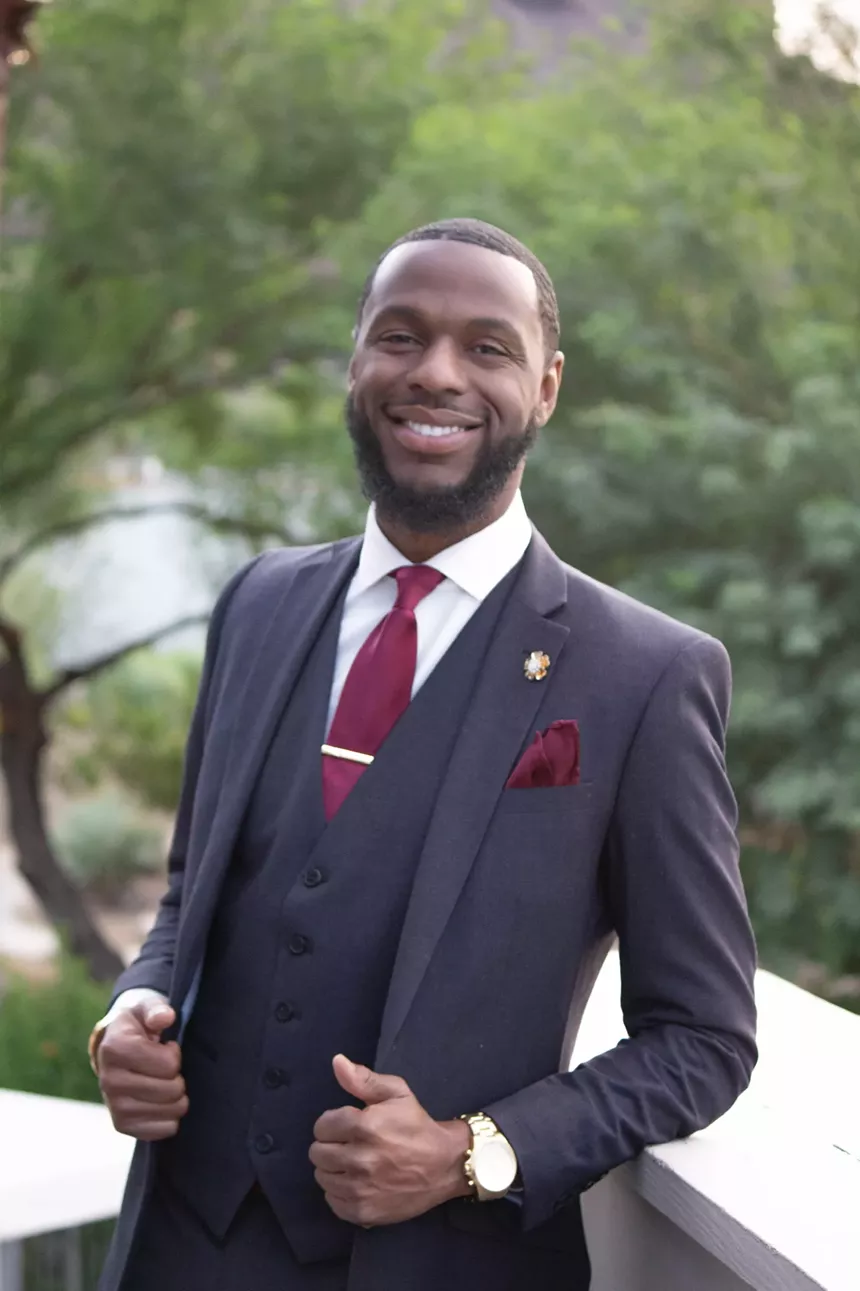Arizona is slow to clear pot convictions.
[ad_1]
One of the main selling points of Proposition 207, the citizens’ initiative that legalized recreational cannabis for adult use in 2020, was the prospect of clearing citizen marijuana arrest records that were caught in the process. war on drugs.
The adoption of Proposition 207 meant that convictions for minor offenses could be removed and sealed. These include the possession of up to 2.5 ounces of flowers, up to 12.5 grams of concentrate or paraphernalia, or the expense of growing up to six plants for personal consumption.
On July 12, the state began accepting delisting requests from approximately 192,000 Arizona residents.
But nearly five months after the start of the program, the monumental task has not really been touched.
Nonprofits such as Arizona NORML (National Organization for Marijuana Law Reform) and the Arizona Justice Project have crisscrossed the state’s nursing home clinics and provided free legal aid.
Slow start
But the real action took place in lawyers’ offices and courtrooms.
“The Maricopa County District Attorney’s Office has so far reviewed approximately 7,500 marijuana convictions and filed motions to strike approximately 7,000,” wrote Jason Kalish, MCAO Trial Division chief, in a recent email. “We also have a website where people can ask us to petition on their behalf. So far we have received approximately 1,150 requests through the website. Between these two projects, we filed 8,036 erasure requests on behalf of individuals. ”
There have been about 900 other files filed by citizens, and Kalish estimates that about 80 to 90 percent of these are approved. He believes around 9,000 people have been deregistered so far.

Jason Kalish, head of the trials division of the Maricopa County District Attorney’s Office.
Maricopa County District Attorney’s Office
There is no statewide clearinghouse for the number of completed write-offs, but Maricopa County easily leads the way. The county is home to 4.5 million people and accounts for about 60% of all criminal prosecutions, not just drug charges, in the state.
The MCAO and the courts have succeeded in eliminating a large number of minor drug convictions by tackling the most obviously qualified cases and speeding them up.
For Kalish, the delisting began last November when Proposition 207 was passed with 60% of the vote. By the time spring 2021 arrived, his office was ready to pull the trigger on July 12, the first day petitions were accepted.
“We wanted to give the biggest impact to the people we thought would affect the most,†Kalish said. “For us, these were the most recent cases, of people who had no other felony convictions, or those who only had the marijuana conviction.”
Over the next few months, Kalish’s office focused on “fruits at hand” and worked with the courts to pave the way for how other counties might settle their cases.
Senior attorney for the Pima County District Attorney’s Office, Jack Chin, estimates that there are approximately 60,000 potential cases that need to be investigated in a county of one million people.
Even in the state’s “liberal strongholdâ€, erasing the records of those most affected by the war on drugs is no easy task. The Pima County Superior Court reports that as of the end of October, only 48 petitions have been filed, of which 24 have been granted and 19 are pending.
Chin said part of the problem is that county courts demand a higher level of detail from prosecutors, which takes valuable time and resources.
“If the voters’ intention is to get this through, the bottom line is that we would like to see more in order of magnitude,” he said. “There are only 1,400 cases of marijuana and cannabis that could go away, but I have to go to court and say I looked at them all.”
Chin said the sheer volume of cases, in addition to the other work the PCAO has to do, is intimidating for a group that is essentially a group of volunteers from his office.
He thinks the solution is to do more aggregate motions in order to erase the obvious cases so that the resources spent on them can go into the more difficult ones. These relate to misdemeanor cases with a clear record and no legal ambiguity.
Other cases are more delicate. Records are lost, circumstances are complicated, key information is lacking, such as the amounts of cannabis involved. And then there are cases where the minor drug charge is secondary to another crime.
Public awareness campaign
A key to Arizona’s infant removal program has been to educate the public.
For several months now, nonprofits, dispensary owners and other players in the cannabis world have been running clinics statewide in hopes of educating those who qualify for the program. The aim is to help them complete the necessary documents and provide them with free legal aid.
To this end, Prop 207 provided a $ 4 million grant from the state’s medical marijuana fund to facilitate removal. The grant was awarded to the Arizona Justice Project in July.
AJP has over two decades of experience in providing advocacy and reintegration services to indigent inmates seeking reintegration into society. It is the lead agency for a group of seven nonprofit organizations that includes community legal services; Southern Arizona Legal Aid, Inc .; DNA People’s Legal Services, Inc .; the Civil Rights Restoration Clinic at the James E. Rogers College of Law at the University of Arizona; Arizona State University’s Sandra Day O’Connor College of Law Post-Conviction Clinic; and community partners American Friends Service Committee and Puente – AZ.
The coalition reached all 15 counties in Arizona and organized 16 clinics as well as 13 “training and education sessions†for volunteer lawyers. In addition, the AJP contracts with lawyers to handle more complicated cases for people who may encounter problems in their de-listing process.
“One of the biggest differences between different counties is the individual’s ability to actually locate their records,” said Lindsay Herf, executive director of AJP. “It seems like everyone has different recordings when they started digitizing things and the systems they use. It was a little more complicated than I thought.”
Arizona NORML Director Mike Robinette has crisscrossed the state with a small handful of volunteers, often camping to save money. By the end of the year, NORML will have hosted nearly 60 free erasure clinics, in partnership with dispensaries statewide and with the help of a donation from Mohave Cannabis Co. and a stable of volunteer lawyers.
“While we are grateful that we can give back to the community and help people get a fresh start through erasure, we have only helped a small number of people who we believe have arrests and sentences erased in Arizona, â€Robinette wrote. in a recent email. “I can only imagine how successful we would be and how many people we could reach if we had access to a significant amount of money to continue doing clinics at the rate we are doing them now.”

Mike Robinette of NORML.
National Organization for Marijuana Law Reform
As a consumer advocacy and policy watch group, NORML has reached hundreds of people in its clinics, but when the timeline hits 2022, the organization will need to focus on the next legislative session.
Robinette says the association will continue clinics at a much lower rate, but adds that one of its priorities will be “to push for a bill that will allow universal and automatic radiation”.
“We believe this is the only realistic way to bring relief to all Arizonans who have minor marijuana arrests and convictions,†he said. “The de-listing process should shift the burden from the petitioner to prosecutors and the courts. This would certainly streamline and speed up the process.”
Legislative action is one way to speed up the process, as would getting judges to easily accept petitions from prosecutors in the same way Maricopa County has handled its cases.
This would leave the work of the more difficult cases to pro bono lawyers affiliated with nonprofit organizations.
Martin Hutchins, head of marijuana removal litigation for AJP, believes the wording of Proposition 207 could have been improved with some tweaking to force prosecutors to file motions rather than making it an option.
“It shouldn’t take the law to force prosecutors to go ahead with the people case,” Hutchins said. “The fact that the role of a prosecutor is justice for the people should cause more officers to testify on behalf of the people, so that more people have better employment opportunities, better housing opportunities, just better opportunities overall. ”

Martin Hutchins, Marijuana Deregistration Litigation Officer for Arizona Justice Project.
Arizona Justice Project
However, legislative solutions take time and there is no guarantee of adoption.
Chin says his office will continue unabated no matter what.
“We are hoping for a legislative corrective, an initiative or a proposal to justice to see if they agree that large categories can be deleted en masse,” he said. “But we are not going to wait: we are trying to find something, working with the courts without legislation in a way that satisfies the courts. Now that we have seen how it really played out, we are going back to the table. . ”
Information on deregistration can be found on the websites of county prosecutors. For more information on AJP deregistration, visit azexpunge.org or azjusticeproject.org. Information about Arizona NORML is available at arizonanorml.org/expungement.
[ad_2]



Comments are closed.